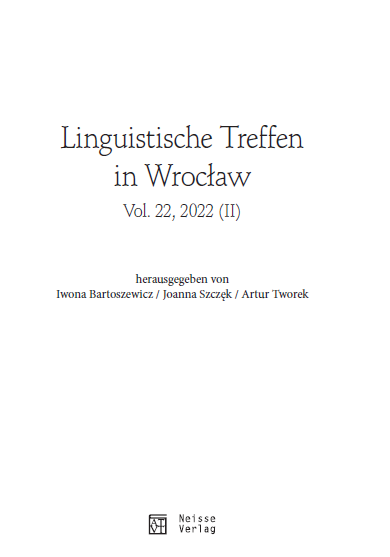Translatorische Weglassungen und Hinzufügungen: PRO und CONTRA
Omission and Addition in the Translation: PRO and CONTRA
Author(s): Oleksandr Bilous, Olha BilousSubject(s): Media studies, Pragmatics, Translation Studies
Published by: Oficyna Wydawnicza ATUT – Wrocławskie Wydawnictwo Oświatowe
Keywords: TV news-language; translation transformations; redundancy; communicative situation; omission; addition; translation equivalence;
Summary/Abstract: Omission and addition of information during the translation of TV news can significantly affect the text content, which, in turn, causes a change in pragmatic influence. Sometimes, omission of the information in the text weakens the pragmatics, which the author of the source text originally laid in the text itself. Such translation transformations can only be used in particular cases where, for example, cultural-specific information of the news is unimportant for its recipient, excessive or impossible to understand. It can be transmitted correctly by means of the target language without additional explanation (e.g. in the form of footnotes, the use of which during the TV news translation is impossible). However, the question of unimportance of information is rather subjective; a translator may omit the information in the text by mistake, even though it has an implicit meaning in terms of informational value. A translator should carefully use such translation transformations as omission, especially when TV news is discussed. After all, TV news texts are carefully created, and the information is selected in a way to inform a recipient and to make a certain impact on his thoughts, to form his outlook, to change or to fix his vision of a particular event that has taken place or is discussed in TV news. But, if a translator uses such transformations, they can have a significant effect on the text content. This can provoke the shift or deformation of the text coherence because the omission of a phrase affects the syntactic structure of the sentence, and the omission of one or more sentences can affect textuality in general. For example, some important information may remain out of focus. Alternatively, new semantic colors or shades that are absent from the source text may appear after adding a single word. By adding information to the translation text, the information service tries to influence the Ukrainian-speaking recipient, partially changing the pragmatics of the original text. If a recipient does not speak German, this discrepancy will hardly be noticeable. However, this should not be the norm, as translators should make the translation as equivalent as possible in order to avoid such errors.
Journal: Linguistische Treffen in Wrocław
- Issue Year: 22/2022
- Issue No: 2
- Page Range: 33-43
- Page Count: 11
- Language: German

